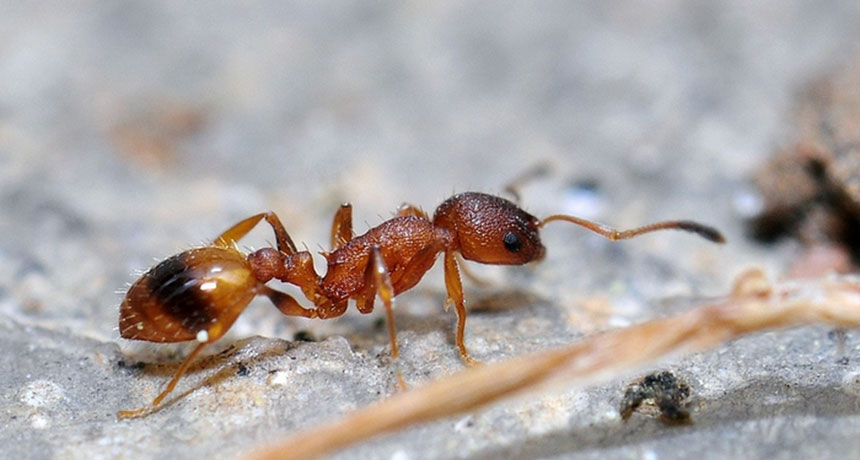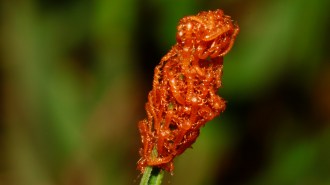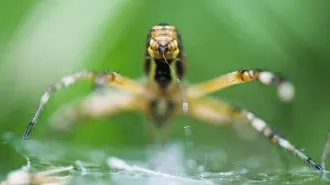Ants don’t make decisions on the move
Mathematical analysis shows the insects stop to consider their next step

SINGLE-MINDED While exploring a new environment, some ants stop walking to plan their next movements. This think-first, walk-later behavior may limit mental strain on busy ants like the Temnothorax albipennis observed in a new study, or the Temnothorax unifasciatus (pictured).
Ihagee86/flickr (CC BY-SA 2.0)








